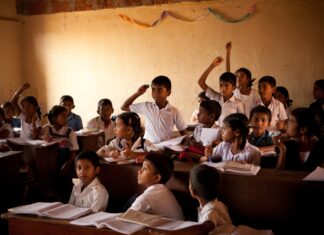Should the NEP Prescribe a Three Language Policy with Hindi?
Understanding the Context
On the 31st of May 2019, the Ministry of Human Resource Development (HRD) released the Draft National Education Policy (NEP), a comprehensive...
2021 & Beyond: Building a Roadmap for Education
Hosted by Sourya Reddy
Edited by Malavika VN
The Budget for Education reduced by 6% in 2021, leaving many working in the field trying to understand...
Trapped! How our education system makes and breaks learning traps
This article is the second instalment of a two-part series on why learning traps ensnare children in cycles of poor academic performances, and what...
The Bastion Dialogues: Shreyasi Singh
Shreyasi Singh (SS) is the Founder and CEO of Harappa Education, an online learning institution dedicated to equipping adult learners with cognitive, social and...
Open Access Chronicles: Breaking Down Open Access Journals with Johan Rooryck (Chapter 4)
Hosted by Sourya Reddy
Edited by Nidhi Rejithlal
In the latest chapter of our series — Open Access Chronicles, we speak to Professor Johan Rooryck, the...
Teaching India: Analyzing the Four-Year B.Ed Programme
Written by Ipsita Mishra
"Those who can, do; and those who cannot, teach"
George Bernard Shaw’s one line, which was meant to be some harmless banter,...
Beyond Binaries: Developing Gender Inclusive Textbooks for Our Schools
Every now and then, educational posters of an 'Ideal Boy-Good Habits' or an 'Ideal Girl-Good Habits' designed for classrooms go viral on social media. While they may seem harmless at first, a deeper conversation is required on how our education system designs curriculum and learning tools. In this article, we explore how gender inclusive and sensitive our school textbooks are.
Barbarians at the Feet of Dragons
Written by Philip Deweyi
Introduction: Getting to the core of today’s emerging challenges
In an increasingly complex global economy, rapidly evolving technology forces us to question...
Locating Sangh Shakhas Amidst a Secular India
Written by Simran Taneja
When translated from Sanskrit, the term shakha (śākhā) means a party, section, faction, school or sect of an ideological group. In...
Cast Away: A Case For Place-based Education in the Andaman and Nicobar Islands
A place-based curriculum in the Andaman and Nicobar Islands can not only ignite individual student potential—but the value of local ecosystems as well.
















